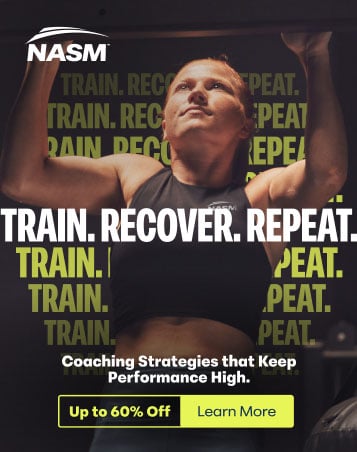Popular diets often look like a good solution for those seeking weight loss. They usually come with a list of acceptable and unacceptable foods which is straight forward and takes the guesswork out of making daily food choices.
Similarly, many of these diets have a long list of health benefits that allegedly come along with adherence to the diet: lowering inflammation, reversing metabolic stress, restoring hormonal balance, etc. However, it is unclear in the literature if any of these claims are true (Anton et al., 2017). This article seeks to examine the pros and cons and evidence to support the use of the Whole30 diet.
What is Whole30?
The Whole30 diet was originally created by two nutrition coaches in 2009 and is essentially what its name implies- only whole foods are consumed for a period of 30 days. The diet seeks to eliminate a host of different foods and serves as a dietary reset with a gradual reintroduction after the full 30-day elimination period. Foods that are allowed include fruits, vegetables (minus most legumes), meats, coffee, nuts/seeds, and certain fats (I.E., olive oil, coconut oil, etc.).
All grains, dairy, sugary foods, artificial sweeteners, gluten, soy, alcohol, and prepared foods with any of these ingredients are forbidden. Foods are reintroduced slowly and systematically (one at a time) once the 30-day restriction period is over. The rules of the diet are very rigid- if there is any cheating the 30-day restriction period starts all over again.
There has not been extensive research conducted on the effectiveness of the diet for either short- or long-term weight loss in addition to claims of health benefits, however, there are reasons why this diet may be appealing to some (Momentum, 2019).
Why Someone Would Try It
The Whole30 diet is very appealing to anyone interested in making a relatively drastic change to their diet, detecting food sensitivities, and working towards eating more whole foods. Though many become interested in this diet to lose weight, that is not really the intent of the diet.
Rather, the Whole30 diet is more focused on improvement in general health and identification of potential food sensitives. Weight loss can be a welcomed side effect if a person’s diet is composed mostly of high-fat and high-sugar foods which are then removed from the diet.
Top 5 Benefits
It is important to note that there has been very little scientific research conducted on the Whole30 diet. These benefit claims are only theoretical and anecdotal. They have not been validated by research.
Reduction in Consumption of High Sugar Foods
Foods deemed acceptable by the Whole30 diet do not include high-sugar food. Reduction in sugar intake is associated with many health benefits including but not limited to reduction of the risk of Type 2 diabetes, metabolic syndrome, reduction in cardiovascular risk as well as the risk of malignancy.
Though these benefits can be seen with reductions in sugar consumption by as little as 20 percent, it is often difficult for people to reduce this sugar intake in a consistent fashion. Significant reduction in sugar intake can be achieved via the Whole30 diet if the user is consistent and adheres to it (Vreman et al., 2017).
Increase in Consumption of Nutrient Dense Foods
The foods promoted on the Whole30 diet include foods that are close to their natural form and contain high levels of essential nutrients (I.E., meats, vegetables, fruits, seeds, etc.). Consumption of nutrient-dense foods supports the reduction in bodily inflammation, optimal immune function, optimal hormonal function, reduction of cancer and cardiovascular risk, and longevity.
If an individual’s diet is generally low in these nutrient-dense foods, the Whole30 diet can be a way to introduce these foods to the diet (Nicklas et al., 2014).
Ability to Identify Food Sensitivities
Approximately 20 percent of the world’s population is affected by food intolerance. Although there are many online tests that can allegedly identify a person’s food sensitivities, these tests are not well-validated and often fail to produce accurate results. Food sensitivity or intolerance differs from a true food allergy as it does not create an immune response, so it is difficult to identify via laboratory testing.
Rather, trial and error are the accepted means of identifying food intolerances that may affect a healthy gut microbiome, cause gastrointestinal distress, or an overall feeling of malaise (Tuck et al., 2019). One of the primary aims of the Whole30 diet is to remove common culprits of food intolerance from the diet and reintroduce them in a systematic fashion to determine if there is in fact a sensitivity. This can provide a good means of identifying a food intolerance if one is suspected.
Removal of Alcohol From the Diet
A common reason that many of my personal clients end up in my nutrition practice with weight control issues is often due to heavy alcohol consumption in addition to other health problems. Although consuming alcohol in moderation has little effect on weight, consuming 7 or more drinks per week constitutes heavy drinking and may lead to difficulties with weight control (Traversy & Chaput, 2015). Alcohol is eliminated from the diet as part of the Whole30 plan and may help the dieter reduce their overall alcohol consumption.
Possible Weight Loss
The aim of the Whole30 diet is not to induce weight loss. Rather, the creators This is well advertised on the Whole30 website (Whole30, 2019). However, if a person struggles with consuming a lot of energy-dense low nutrient-density foods (I.E., a lot of junk foods), this diet could induce weight loss as these foods are removed from the diet, thereby dropping overall calorie intake.
Similarly, high fat/high sugar combinations in foods make them highly palatable and somewhat addictive. Removal of these foods from the diet for several weeks can help reduce cravings for these foods setting the stage for a healthier diet going forward (Gordon et al., 2018).
Potential Downsides
Perhaps the most glaring downside of the Whole30 diet is the fact that it is so restrictive. Healthy eating must be sustained over time to produce any health benefits. Likewise, all human societies have elements of celebration and socialization tied to food consumption. A diet that restricts many foods can significantly limit a person’s participation in social events oftentimes leading to discontinuation of that diet and ultimate failure of that diet to produce health benefits. Likewise, the diet requires 100 percent compliance which is often very difficult for most individuals (Mohan & Joshi, 2018).
Secondly, the Whole30 diet excludes many foods that are in fact nutrient dense and should be part of a healthy diet such as whole grains, dairy products, and legumes and it is very little by way of scientific evidence to support their exclusion (Nicklas et al., 2014).
Consumption of whole grains and legumes is tied to a reduction in diabetes risk as they reduce blood glucose spikes. Similarly, dairy products often contain highly biologically active proteins (I.E., whey, and casein) that promote muscle protein synthesis (muscle gain). Legumes such as lentils and chickpeas have high concentrations of phytonutrients that are highly beneficial to overall health (Venn et al., 2012). Overall, the exclusion of these foods from the diet can reduce a person’s consumption of essential vitamins and minerals.
Of equal importance, this diet can be detrimental to an individual with a history of disordered eating. A person with a history of anorexia nervosa, bulimia nervosa, orthorexia, eating disorder otherwise not specified (EDNOS), habitual restrictive eating or yo-yo dieting, restriction/binge eating patterns should use caution before using this diet due to its highly restrictive nature (Memon et al., 2020).
Is it Right for You?
Ultimately, it would help if you decided what you are looking for in a diet. If you are looking for a diet that promotes a long-term balanced approach to healthy eating, the Whole30 may not be the best choice. It is also important to understand that this diet is not designed to induce weight loss if that is your goal.
Equally, there is very little in the way of scientific evidence directly supporting the diet’s purported benefits (I.E., higher energy levels, reduced inflammation, better sleep, reduced food cravings, etc.). However, if you feel that you need a hard reset with eating so to speak, or suspect a food sensitivity, it may be worth a try.
References
Anton, S., Hida, A., Heekin, K., Sowalsky, K., Karabetian, C., Mutchie, H., Leeuwenburgh, C., Manini, T., & Barnett, T. (2017). Effects of Popular Diets without Specific Calorie Targets on Weight Loss Outcomes: Systematic Review of Findings from Clinical Trials. Nutrients, 9(8), 822. https://doi.org/10.3390/nu9080822
Cena, H., & Calder, P. C. (2020). Defining a healthy diet: Evidence for the role of contemporary dietary patterns in health and disease. Nutrients, 12(2), 334. https://doi.org/10.3390/nu12020334
Gordon, E., Ariel-Donges, A., Bauman, V., & Merlo, L. (2018). What Is the Evidence for “Food Addiction?” A Systematic Review. Nutrients, 10(4), 477. https://doi.org/10.3390/nu10040477
Memon, A. N., Gowda, A. S., Rallabhandi, B., Bidika, E., Fayyaz, H., Salib, M., & Cancarevic, I. (2020). Have Our Attempts to Curb Obesity Done More Harm Than Good? Cureus, 12(9). https://doi.org/10.7759/cureus.10275
Mohan, V., & Joshi, S. (2018). Pros & cons of some popular extreme weight-loss diets. Indian Journal of Medical Research, 148(5), 642. https://doi.org/10.4103/ijmr.ijmr_1793_18
Momentum. (2019, February 19). Debating Diets: What is the Whole30 diet? Baylor College of Medicine Blog Network. https://blogs.bcm.edu/2019/02/19/debating-diets-what-is-the-whole30-diet/#:~:text=You%20likely%20won%27t%20see
Nicklas, T. A., Drewnowski, A., & O’Neil, C. E. (2014). The nutrient density approach to healthy eating: challenges and opportunities. Public Health Nutrition, 17(12), 2626–2636. https://doi.org/10.1017/s136898001400158x
Traversy, G., & Chaput, J.-P. (2015). Alcohol Consumption and Obesity: An Update. Current Obesity Reports, 4(1), 122–130. https://doi.org/10.1007/s13679-014-0129-4
Tuck, C. J., Biesiekierski, J. R., Schmid-Grendelmeier, P., & Pohl, D. (2019). Food Intolerances. Nutrients, 11(7), 1684. https://doi.org/10.3390/nu11071684
Venn, B., Thies, F., & O’Neil, C. (2012). Whole Grains, Legumes, and Health. Journal of Nutrition and Metabolism, 2012, 1–2. https://doi.org/10.1155/2012/903767
Vreman, R. A., Goodell, A. J., Rodriguez, L. A., Porco, T. C., Lustig, R. H., & Kahn, J. G. (2017). Health and economic benefits of reducing sugar intake in the USA, including effects via non-alcoholic fatty liver disease: a microsimulation model. BMJ Open, 7(8), e013543. https://doi.org/10.1136/bmjopen-2016-013543
Whole30. (2019). The Whole30® Program - As featured in the New York Times bestselling book, The Whole30. Whole30.com. https://whole30.com/

















